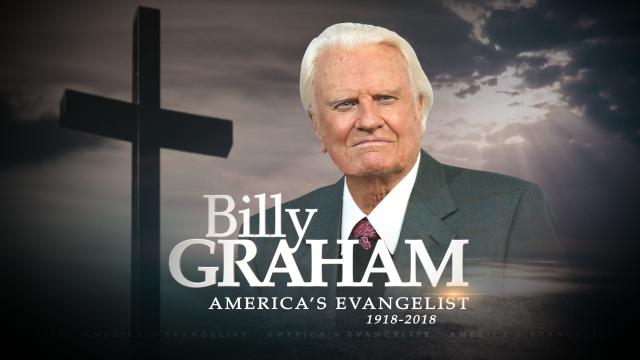filter posts:
Date
A Grain of Wheat Must Die
 Joseph Damien was a nineteenth-century missionary who ministered to lepers on the island of Molokai, Hawaii. The people in this colony grew to love him, revering the sacrificial life he lived out before them. But even he did not know the price he would eventually pay.
Joseph Damien was a nineteenth-century missionary who ministered to lepers on the island of Molokai, Hawaii. The people in this colony grew to love him, revering the sacrificial life he lived out before them. But even he did not know the price he would eventually pay.
One morning before he was to lead their daily worship, he was pouring some boiling water into a cup when some splashed out and fell on his bare foot. It took him a moment to realize that he had not felt any pain. Gripped by the sudden fear of what this could mean, he let more boiling water spill onto his foot. No feeling whatsoever. Damien immediately knew what had happened. He walked tearfully to deliver his sermon, and no one at first noticed the difference in his opening line. You see, he normally greeted them, “My fellow believers.” But this morning he began with, “My fellow lepers.”
Oh, my friends! It is one thing to minister and pour your life into others at a distance or when the cost to you is minimal. It is quite another to give of yourself to others in a way that will require all. In the greatest sacrifice imaginable, Jesus came into this world knowing what obedience to the Father would cost him. He was fully aware, in the words of the prophet Isaiah, that it would be his Father’s will to crush him. Still, Jesus came. (adapted from Ravi Zacharias’ “The Price of Sacrifice”)
On what is now known as Palm Sunday, just five days before he was to be crucified, Jesus entered Jerusalem on a donkey. He explained his coming in this metaphor: “Unless a grain of wheat falls into the earth and dies, it remains alone; but if it dies, it bears much fruit.”
Do you know that grains of wheat have been found in Pharaoh’s tombs from ancient Egypt? They are thousands of years old, but the grains hold the same potential they held when put in the tomb. When those wheat berries have been planted, they have sprouted like they were just plucked off the stalk. An amazing seed, the grain of wheat! But it is absolutely and utterly useless unless it dies, unless it is buried in the cold, unforgiving earth. The sprout comes, then the blade, then the stalk, and finally the head. Then there is not just one tiny grain of wheat, but thousands. When you plant those thousands you can one day stand beside a shimmering field of wheat, rippling in the breeze, golden in the sunshine, and you can say you have seen a grain of wheat. You have seen all the possibilities of it; all of it has been unfolded and now is visible to the eye. That is what Jesus meant. The world would not see the full outcome of his work and his life until he went to the cross.
And so he came. Jesus came into Jerusalem, riding on a donkey. He came through the thronging crowds of people who would sing his praises on Sunday, arrest him on Thursday, and curse him on Friday. He came to die, so that the grain of wheat would produce untold millions.
One of those grains of wheat stood before his congregation more than 1800 years later and said, “My fellow lepers, I am one of you now.” Joseph Damien lived four more years and died of leprosy. But his death was not in vain. There are thousands bearing fruit today because of him.
March 26, 2018
Is the Lord at Home in You?
 When we lived in Graham, we had next-door neighbors who loved our children. Our son, Jesse, had learned that he could knock on their door, and walk away with a fistful of cookies. We told our son, after this happened several times, that we didn’t want him to ask the neighbors for cookies any more. So, our four-year old would go and stand in their carport, looking longingly at the door, until Diane saw him and came out. Jesse then asked, “What have you got in your house?” Hey, he wasn’t begging for cookies! My son knew that whatever she had was his for the asking, because Jim and Diane had made all our children feel at home there.
When we lived in Graham, we had next-door neighbors who loved our children. Our son, Jesse, had learned that he could knock on their door, and walk away with a fistful of cookies. We told our son, after this happened several times, that we didn’t want him to ask the neighbors for cookies any more. So, our four-year old would go and stand in their carport, looking longingly at the door, until Diane saw him and came out. Jesse then asked, “What have you got in your house?” Hey, he wasn’t begging for cookies! My son knew that whatever she had was his for the asking, because Jim and Diane had made all our children feel at home there.
What happens when somebody feels at home in a place? Or, how does a person act when he does not feel at home? The way I felt at my Grandmother’s was way different than how I feel when I visit the Biltmore House. Whenever I go there, it drives me crazy because I like to experience something. They won’t even let me touch the furniture. They said, “No,” when I asked if I could crawl up into Mr. Vanderbilt’s bed to see how comfy it was. They said, “Forget it,” when I asked if I could swim in his indoor pool, or fix a sandwich in his kitchen, or even play one lousy game of billiards. You can look, they said, but you may not touch. As much as I tried to make suggestions at the Biltmore House about making the place a bit more inviting, they were not interested. When I pulled my grill out of the trunk and set it up on the front yard for a cookout, you should have seen the security guys come running. Whenever I’m there, even though I have to take out a loan to go inside the place, they make it clear that I am not welcome to make myself at home. That’s not the way it was at Nana’s house growing up. I could walk into the kitchen and get something to eat any time. I could use any of the furniture in her house; in fact, Cindy and I ended up with a house full of it when we got married. When I was at Nana’s, I didn’t have to worry about being loved or accepted. I felt it. I knew it. I was at home.
When Paul writes, “Let the Word of Christ dwell in you richly,” it is the same the idea. It means, let the Word of Christ, even Christ himself, be at home in you. Let him have the run of the place and make it his own. Let him change the way you live, the way you think, even the way you feel. Sadly, for some who follow the Lord, that’s not the way it is. He is only welcome to be a guest, but never welcome to call the shots. Some say, “OK, Lord, you can come into this room, because this is where I pray, but don’t look in there. And no way will you look under my bed or in my closet!”
I heard one preacher say a woman bragged that she had been through the Bible 37 times. He smiled and said, “How many times has it been through you?” The question is not, how much Word do you know, but how much has the Word moved in and taken up residence? You have to watch that Jesus of Nazareth. He won’t just take up space; he will take over. That, my friends, is exactly what is supposed to happen. He is Lord.
We moved away from Graham many years ago, but we remember with gratitude the good neighbors we had there. We knew that with them, we were right at home.
Is the Lord at home in you?
March 23, 2018
It’s a Slow Slide Away From God
 There’s something quite contemporary about the book of Amos, even though it was written 760 years before Christ. God sent Amos to speak to the people of Israel, because they had forgotten the Lord.
There’s something quite contemporary about the book of Amos, even though it was written 760 years before Christ. God sent Amos to speak to the people of Israel, because they had forgotten the Lord.
The people in the capital city of Samaria had winter houses and summer houses. They had houses of ivory. They had great houses. It seems they believed then what we believe today: real property is a safeguard against future troubles. People talk about how investment in real estate is the way to go because, “They’re not making any more of it.” In Samaria in the 8th century B.C., the economy was booming, and the world was their oyster. They slept on couches or beds while most of Israel slept on the ground. They didn’t lack for a thing. When they got tired of living in their summer house, they moved to their winter house. Life was good. They just had one problem, and it was unavoidable: God. Oh, and Amos, this pesky shepherd-turned-prophet. He says, “You like your houses? Well, God is going to destroy every one of them. Your summer house. Winter house. Great house, ivory house. They will all be laid low.”
Is that because God is against people owning a home? Of course not. Is God against people having possessions? No! Is God mad at wealthy people? No. But the question is not how much you own, but whether what you have owns you. For when accumulation of more wealth becomes the trajectory of our lives, we are in trouble. That’s when we pick up our bags at “Consuming to Live Lane” and move to “Living to Consume Court.” That’s when we find ourselves not satisfied with our lifestyle and are willing to do whatever it takes to get to the next level, the next tax bracket, the next social status. What we live for then, as Francis Schaeffer warned us about in the 1960’s, is “personal peace and affluence.” When that is our goal in life, we are sliding away from God and do not even realize it. What God teaches us through the book of Amos is this: wealth can never be our security. Riches cannot protect our souls.
What happens to people, what happens to a nation, that becomes consumed with possessions, and cares only about accumulating more? God answers that question in the book of Amos, as well. He says, “They do not know how to do right.” It is a growing trend in our nation today, isn’t it? Many people no longer ask, “What is the right thing to do?” Instead, they ask, “What is the expedient thing to do? What will be easiest? What will be most pleasurable? What will be most profitable?” When we get to that place in education, only the voices that sing along with what is culturally acceptable are allowed to speak. If current conventional ‘wisdom’ is contrary to what the Bible teaches, you don’t have to guess which one is kicked to the curb. When we stop asking what is the right thing to do in a business, we cut corners on quality, or we underpay our employees, or we lie to our customers about performance or warranty or price. When we arrive at the same place as a family, we may decide that our children need things, or comfort, or fun experiences more than anything else, so we sacrifice doing the hard work of training them and building their character, and only give them what they want. When we get to this place in our own spiritual growth, we may choose to do what is easy and convenient in our Bible reading or prayer. We slowly slide away from worship, giving, and serving. It becomes less important for us even to show up on Sunday morning, though we desperately need to be equipped as followers of Jesus Christ.
It’s a slow slide away from God, and the price we pay is not worth it.
March 12, 2018
Welcome Home, Billy Graham
 I had breakfast with my mom last Friday, two days after Billy Graham met Jesus face to face. While we were eating, Mom said, “Wouldn’t you loved to have been in heaven on Wednesday morning?” Yes. I am sure that was a sight to see, as it is anytime one who belongs to the Lord crosses over from death to life.
I had breakfast with my mom last Friday, two days after Billy Graham met Jesus face to face. While we were eating, Mom said, “Wouldn’t you loved to have been in heaven on Wednesday morning?” Yes. I am sure that was a sight to see, as it is anytime one who belongs to the Lord crosses over from death to life.
My great-grandma Hauser was a powerful spiritual influence on me when I was a child. She never knew it, and I didn’t recognize it at the time, but she was. I spent a lot of time with her and remember with fondness the normal lunch she fixed for my brothers and me: a grilled cheese sandwich and a bowl of tomato soup. Campbell’s, of course. I also remember this little lady with her gray hair in a bun and her wire rim glasses perched on her nose, reading intently from her dog-eared Bible with the pages yellowed from years of loving attention. And close to the Bible, there was always a copy of “Decision” magazine. Every now and then I would read that magazine and find Billy Graham’s articles there, news about his preaching campaigns all over the world, and testimonies from people who had heard the Gospel through this native North Carolinian. Maybe that’s why when I was just a little guy of 8 or 9 years old, I told people that one day I would be a preacher. Those who knew me and the rascal that I was scoffed at the idea, but not Grandma Hauser. She saw with eyes of faith, perhaps, that God could use even me, this middle son with the hot temper and the quick tongue. As one pastor told me years ago, “Hey, God can hit a straight lick with a crooked stick.”
Sherwood Wirt, who was editor of “Decision,” said this about Billy Graham: “My first impression of the man at close quarters was not of his good looks but of his goodness; not of his extraordinary range of commitments, but of his own ‘committedness’ to his Lord and Master. To be with him even for a short time is to get a sense of a single-minded man; it shames one and shakes one as no amount of ability and cleverness can do.” That’s the Billy Graham I grew up admiring, the man who was singularly focused on the Lord Jesus Christ, the Gospel message, and his desire that every person hear the truth about their greatest need: to be saved from sin. He was a counselor to Presidents, he preached to Kings and Queens and Dictators and Prime Ministers. He wrote books and newspaper columns. He encouraged evangelists all over the world and brought them together for training. But mostly, Billy Graham was a preacher. He believed the Bible is truth from God and he spent his life telling millions that truth.
Woody Allen interviewed Billy years ago and introduced him by saying with a smile that there’s a lot that he doesn’t agree with Graham about. The first thing Billy said with a big smile was, “It’s very nice to be with you, Woody, and I would like to say that there are a lot of things I don’t agree with you on.” After the laughter, Woody asked Billy what his favorite commandment was. He replied, “Well, right now, with a lot of teenagers, it’s to honor thy father and thy mother.” Woody said that was his least favorite commandment, and that he was saving his money so when he got a little older, he could put his parents in a home. After the laughter died down, Billy said, “That’s very good; I hope it will be in a home with you.”
The world will miss Billy Graham. But he is finally home.
March 5, 2018
